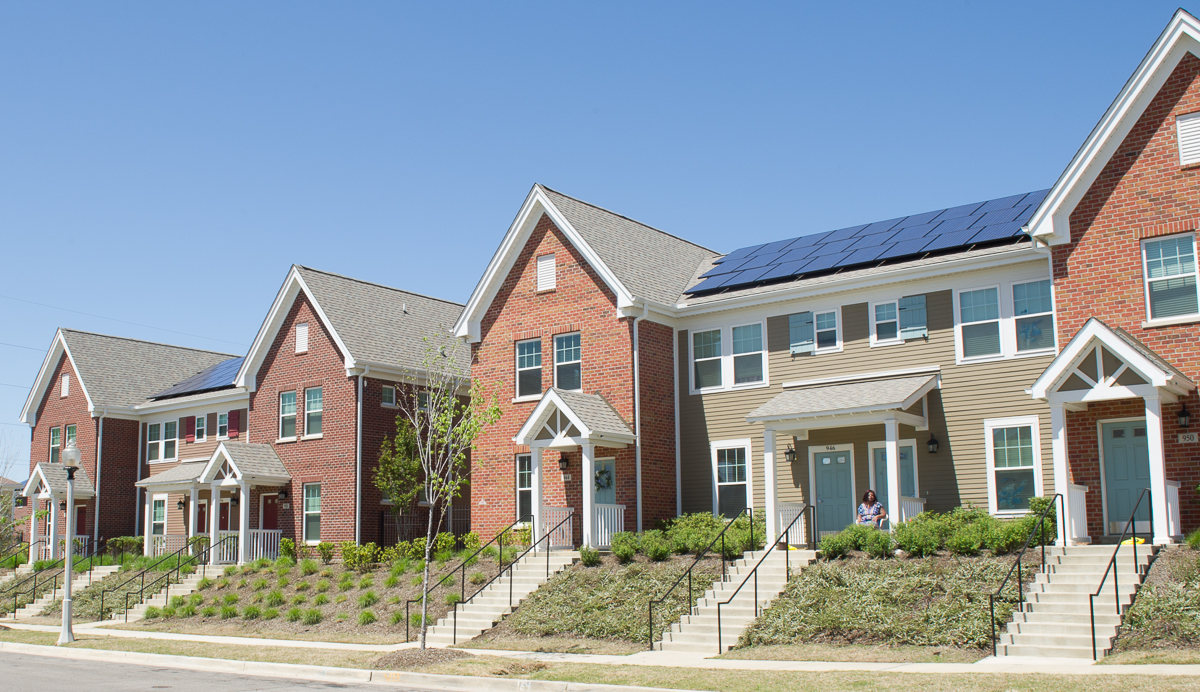Michigan, a state known for its diverse landscapes, vibrant cities, and rich history, offers a unique and dynamic real estate market. This article delves into the various facets of Michigan real estate, from urban developments to rural landscapes, exploring key trends, market drivers, and investment opportunities.
- Urban Real Estate: A Glimpse into Michigan's Cities
- Suburban Charm: Residential Developments in Michigan
- Lakeside Living: Waterfront Properties in Michigan
- Economic Factors: Influencing Michigan's Real Estate Market
- Market Trends and Challenges: Navigating the Michigan Real Estate Scene
- Investment Opportunities: Where Michigan Real Estate Shines
- Regulatory Landscape: Navigating Michigan's Real Estate Laws
- Conclusion
Urban Real Estate: A Glimpse into Michigan’s Cities

Michigan’s urban real estate landscape is a fascinating tapestry, shaped by a blend of historical significance, urban renewal, and innovative developments. Let’s delve into key cities, each with its unique character.
1. Detroit: A City Reimagined
Once an emblem of industrial decline, Detroit has undergone a remarkable transformation. The downtown area has seen a resurgence, with abandoned buildings giving way to modern residential and commercial spaces. Renovated historic structures coexist with sleek skyscrapers, creating a diverse architectural landscape.
2. Grand Rapids: Balancing Tradition and Modernity
Grand Rapids, known for its vibrant art scene, combines historic charm with contemporary developments. The city’s real estate market reflects a balance between preserving its heritage, seen in neighborhoods like Heritage Hill, and embracing modern, sustainable architecture in areas like downtown.
3. Ann Arbor: Academic Excellence and Urban Living
Home to the University of Michigan, Ann Arbor’s real estate market benefits from its status as a hub for education and innovation. The city offers a mix of student housing, historic neighborhoods, and modern condominiums. The demand for proximity to the university and a thriving cultural scene influences real estate trends here.
4. Lansing: Government Hub and Residential Appeal
As Michigan’s capital, Lansing’s real estate market is influenced by government offices and institutions. Residential areas feature a mix of housing options, catering to both families and professionals. The city’s real estate landscape is shaped by its role as a governmental and administrative center.
5. Kalamazoo: Emerging Urban Center
Kalamazoo, with its growing healthcare and education sectors, is emerging as a dynamic urban center. The real estate market reflects a blend of affordable housing options and areas experiencing revitalization. The city’s transformation attracts both residents and investors seeking promising opportunities.
6. Flint: Rebuilding Amid Challenges
While Flint has faced economic challenges, there are ongoing efforts to revitalize the city. Real estate initiatives focus on affordable housing, community development, and repurposing vacant properties. The city’s real estate landscape reflects resilience and community-driven projects.
7. Traverse City: Urban Living with a Scenic Twist
Nestled in northern Michigan, Traverse City offers a unique blend of urban living against a backdrop of natural beauty. The real estate market here caters to those seeking a balance between city amenities and proximity to outdoor recreation. Waterfront properties and historic neighborhoods contribute to Traverse City’s diverse real estate offerings.
In summary, Michigan’s cities each contribute a distinct chapter to the state’s real estate story. Whether it’s the revitalized urban core of Detroit, the cultural richness of Ann Arbor, or the emerging charm of Kalamazoo, Michigan’s urban real estate landscape is a dynamic canvas reflecting the state’s diverse and evolving identity.
Suburban Charm: Residential Developments in Michigan

Michigan’s suburban landscape is characterized by a harmonious blend of tranquility, accessibility, and community-centric living. Let’s explore some of the key suburban areas that epitomize the state’s residential charm.
1. Birmingham: Sophistication and Community
Birmingham, located in Metro Detroit, is synonymous with upscale suburban living. The real estate market here features tree-lined streets, luxury homes, and a vibrant downtown. Renowned for its excellent schools and boutique shopping, Birmingham attracts families seeking a sophisticated yet community-oriented lifestyle.
2. Rochester Hills: Family-Friendly Atmosphere
Rochester Hills, situated north of Detroit, offers a family-friendly atmosphere with well-planned neighborhoods and top-rated schools. The real estate market caters to a diverse range of homebuyers, from spacious single-family homes to modern condominiums. Parks, recreational facilities, and community events contribute to the area’s suburban appeal.
3. Plymouth: Historic Charm and Modern Convenience
Plymouth, with its historic downtown and modern amenities, exemplifies a balance between old-world charm and contemporary living. The residential market showcases a mix of historic homes, new constructions, and townhouses. Residents enjoy a close-knit community, cultural events, and easy access to nearby urban centers.
4. Novi: Retail Hub and Residential Haven
Novi, known for its commercial vibrancy with the Twelve Oaks Mall and entertainment options, also boasts a diverse residential landscape. The real estate market caters to various preferences, from suburban single-family homes to upscale condominiums. Proximity to major highways makes Novi an attractive choice for those seeking convenience.
5. Ann Arbor’s Surrounding Areas: Academic Enclaves
Beyond Ann Arbor’s urban core, its surrounding areas offer suburban living with an academic touch. Towns like Saline and Dexter provide a peaceful environment, excellent schools, and a sense of community. The real estate market reflects the influence of the University of Michigan, attracting academics and professionals.
6. East Lansing: Student-Friendly Suburbs
Home to Michigan State University, East Lansing’s suburbs cater to students, faculty, and families alike. The real estate market features a mix of rental properties and single-family homes. The university’s influence shapes the community spirit, with a focus on education and cultural activities.
7. Clarkston: Small-Town Charm
Clarkston, nestled in northern Oakland County, offers a small-town atmosphere within reach of urban amenities. The real estate market here features a variety of housing options, from historic homes to new developments. Residents enjoy the charm of a tight-knit community, local events, and outdoor recreation.
In summary, Michigan’s suburban charm is reflected in communities that prioritize a high quality of life, excellent schools, and a strong sense of community. Whether it’s the sophistication of Birmingham, the family-friendly appeal of Rochester Hills, or the historic charm of Plymouth, Michigan’s suburban residential developments provide diverse options for those seeking a balance between serenity and accessibility.
Lakeside Living: Waterfront Properties in Michigan

Michigan’s appeal extends beyond its urban and suburban areas, reaching the picturesque shores of its Great Lakes. Lakeside living in Michigan is a unique experience, offering residents breathtaking views, recreational opportunities, and a serene environment. Let’s explore some of the key aspects of waterfront properties in the state.
1. Great Lakes Grandeur: A Wealth of Waterfront Possibilities
Michigan’s extensive shoreline along the Great Lakes—Superior, Michigan, Huron, Erie, and Ontario—provides a wealth of waterfront property options. From sandy beaches to rugged cliffs, the diverse landscapes along these lakes offer a range of experiences for those seeking lakeside living.
2. Lake Michigan Retreats: Dunes and Tranquility
Lake Michigan, with its vast expanse, sandy shores, and towering dunes, is a prime destination for waterfront living. Communities like Saugatuck and Traverse City offer a mix of upscale homes, cottages, and vacation properties. Lake Michigan’s clear waters and scenic beauty make it a sought-after location for both primary residences and seasonal retreats.
3. Lake Huron’s Charm: Islands and Coastal Living
The shores of Lake Huron boast islands like Mackinac and scenic coastal areas with charming waterfront properties. The unique appeal of island living and the tranquility of coastal homes make Lake Huron a distinctive choice for those seeking a blend of nature and luxury.
4. Lake Superior’s Wilderness: Secluded Beauty
Lake Superior, the largest of the Great Lakes, provides a more secluded and wilderness-oriented lakeside living experience. The Upper Peninsula’s rugged coastline features pristine landscapes and properties that offer privacy and proximity to nature.
5. Inland Lakes: Quaint Retreats and Recreational Havens
Beyond the Great Lakes, Michigan is dotted with numerous inland lakes, each with its charm. From Houghton Lake to Torch Lake, these smaller bodies of water provide opportunities for boating, fishing, and lakeside living in a more intimate setting.
6. Recreational Opportunities: Boating, Fishing, and More
Waterfront living in Michigan goes beyond the aesthetics; it’s a lifestyle centered around recreational activities. Boating, fishing, water sports, and lakeside relaxation are integral to the experience. Many waterfront properties feature private docks and access to these activities, enhancing the overall appeal.
7. Investment and Appreciation: Waterfront Property Value
Waterfront properties in Michigan often hold their value well and can be lucrative investments. The scarcity and desirability of such real estate contribute to its potential for appreciation over time. Whether as a primary residence, vacation home, or investment property, waterfront real estate in Michigan offers a unique blend of lifestyle and financial potential.
In summary, lakeside living in Michigan is a distinctive and sought-after experience, offering a diverse range of waterfront properties along the Great Lakes and inland lakes. From the dunes of Lake Michigan to the wilderness of Lake Superior, Michigan’s lakeside real estate provides a unique blend of natural beauty, recreational opportunities, and a serene lifestyle.
Economic Factors: Influencing Michigan’s Real Estate Market

Michigan’s real estate market is intricately tied to various economic factors that shape its dynamics. Understanding these influences is crucial for investors, homebuyers, and sellers alike. Let’s explore the key economic factors that play a significant role in shaping Michigan’s real estate landscape.
1. Economic Diversification: Beyond Automotive Dominance
Historically known for its automotive industry, Michigan has actively diversified its economy in recent years. Growth in technology, healthcare, and manufacturing sectors has contributed to a more resilient and diverse economic landscape. Real estate markets in areas with thriving industries tend to experience increased demand and stable growth.
2. Employment Trends: Job Markets Impact Housing Demand
The health of Michigan’s job market directly influences the real estate sector. Cities experiencing job growth attract a larger population, resulting in increased demand for housing. Conversely, areas facing job losses may see a slowdown in real estate activity. Monitoring employment trends is vital for gauging the overall health of the real estate market.
3. Interest Rates: Mortgage Affordability and Market Activity
Fluctuations in interest rates impact mortgage affordability, directly influencing homebuying decisions. Lower interest rates often stimulate demand as borrowing becomes more attractive, leading to increased market activity. Conversely, rising rates may slow down the market as affordability decreases.
4. Population Trends: Urbanization and Suburbanization
Changes in population dynamics, including urbanization and suburbanization trends, affect housing demand. Michigan has witnessed shifts in population distribution, with urban areas experiencing revitalization and suburban communities attracting families seeking a quieter lifestyle. Understanding these trends helps anticipate demand in different housing markets.
5. Consumer Confidence: Economic Stability and Real Estate
Consumer confidence plays a crucial role in the real estate market. When individuals are confident in the economy’s stability, they are more likely to make significant financial decisions such as buying a home. Economic uncertainties can lead to cautious spending behavior, impacting real estate transactions.
6. Infrastructure Investments: Urban Renewal and Property Values
Infrastructure projects, such as transportation improvements and urban renewal initiatives, can significantly impact property values. Areas undergoing revitalization often see an increase in demand and property values. Monitoring planned infrastructure investments provides insights into potential growth areas.
7. Regulatory Environment: Policies Affecting Real Estate
Government policies and regulations, including tax incentives and zoning laws, have a direct impact on the real estate market. Understanding the regulatory environment is crucial for both investors and developers as it shapes the feasibility and profitability of real estate projects.
In summary, Michigan’s real estate market is intricately connected to the state’s economic landscape. Factors such as economic diversification, employment trends, interest rates, population shifts, consumer confidence, infrastructure investments, and regulatory policies collectively contribute to the dynamic nature of the real estate sector. Staying informed about these economic influences is essential for making informed decisions in Michigan’s ever-evolving real estate market.
Market Trends and Challenges: Navigating the Michigan Real Estate Scene

Navigating the Michigan real estate scene requires a keen awareness of market trends and an understanding of potential challenges. Let’s explore the current landscape, highlighting key trends and challenges that shape the real estate market in the state.
1. Inventory Levels: Balancing Supply and Demand
One prominent trend in Michigan’s real estate market is the balance between supply and demand. Low housing inventory, especially in popular urban and suburban areas, has contributed to competitive bidding environments. This trend puts upward pressure on home prices and can create challenges for prospective buyers.
2. Affordability Concerns: Impact on Homebuyers
As home prices rise, affordability becomes a significant concern for homebuyers. Wage growth and economic factors influence the ability of residents to enter the housing market. Striking a balance between housing demand and affordability is a key challenge that both buyers and real estate professionals face.
3. Remote Work Influences: Shifting Housing Preferences
The rise of remote work has influenced housing preferences, with a growing emphasis on suburban and rural areas. Michigan’s diverse landscape allows for a range of options, from lakeside retreats to suburban communities, catering to those seeking a change in lifestyle. This shift in preferences impacts both urban and suburban real estate markets.
4. Technology Integration: Changing Real Estate Processes
The integration of technology in real estate processes is a notable trend. From virtual tours to online transactions, technology has streamlined various aspects of the buying and selling process. Real estate professionals adapting to these trends gain a competitive edge in serving tech-savvy clients.
5. Environmental Considerations: Resilience and Sustainability
Increasing awareness of environmental factors has influenced real estate trends. Properties with eco-friendly features, energy efficiency, and proximity to green spaces are gaining popularity. This shift aligns with broader societal values and contributes to the resilience and sustainability of Michigan’s real estate market.
6. Mortgage Rates: Impact on Buyer Behavior
Fluctuations in mortgage rates continue to influence buyer behavior. While lower rates may stimulate demand, higher rates can lead to a slowdown in the market. Monitoring mortgage rate trends is crucial for anticipating market shifts and understanding the potential impact on both buyers and sellers.
7. Regulatory Changes: Adapting to New Policies
Changes in regulatory policies, including zoning regulations and tax incentives, can have a profound impact on the real estate market. Staying informed about these changes is crucial for real estate professionals and investors to adapt their strategies accordingly.
8. Economic Uncertainties: External Factors
External economic factors, such as global events or economic downturns, can introduce uncertainties into the real estate market. Monitoring these macroeconomic trends provides insights into potential challenges and opportunities for real estate stakeholders.
In summary, navigating the Michigan real estate scene requires a nuanced understanding of ongoing trends and challenges. From inventory dynamics and affordability concerns to the influence of remote work and technology integration, staying informed about these factors is essential for making informed decisions in this dynamic and evolving real estate market.
Investment Opportunities: Where Michigan Real Estate Shines

Michigan offers diverse investment opportunities within its real estate market, driven by factors like economic growth, affordability, and unique property options. Let’s explore areas where Michigan’s real estate shines for potential investors.
1. Urban Revitalization in Detroit:
Detroit’s ongoing urban revitalization presents attractive investment opportunities. The downtown area, in particular, has seen significant redevelopment, offering a mix of residential, commercial, and mixed-use properties. Investors looking for potential appreciation and active urban lifestyles may find opportunities in Detroit’s evolving real estate landscape.
2. Suburban Growth:
Michigan’s suburbs, such as those around cities like Grand Rapids and Ann Arbor, showcase steady growth. Suburban areas often appeal to families seeking a balance between urban amenities and a quieter lifestyle. Investing in well-planned suburban developments with proximity to good schools and essential services can be a strategic move.
3. Waterfront Properties:
Michigan’s extensive shoreline along the Great Lakes provides a unique opportunity for investing in waterfront properties. Lakefront homes, cottages, and vacation rentals offer not only scenic views but also potential for value appreciation. Areas like Traverse City and Saugatuck are popular destinations for those seeking lakeside living.
4. College Towns and Student Housing:
Investing in real estate around university towns, such as Ann Arbor and East Lansing, presents opportunities in student housing and rental properties. The consistent demand for housing from students and faculty can provide stable rental income. Additionally, college towns often experience resilience during economic downturns.
5. Industrial and Commercial Real Estate:
Michigan’s diversifying economy includes growth in the technology and manufacturing sectors. This translates to opportunities in industrial and commercial real estate. Investing in warehouses, manufacturing facilities, or commercial spaces in areas experiencing economic growth can be a strategic move.
6. Affordable Housing Markets:
Certain regions in Michigan offer affordable housing markets compared to national averages. Investors looking to enter the real estate market at a lower cost may find opportunities in cities where housing remains accessible, potentially attracting first-time homebuyers or renters.
7. Vacation Rental Market:
Michigan’s natural beauty, including inland lakes and charming small towns, contributes to a thriving vacation rental market. Investing in properties catering to tourists and vacationers, especially in popular destinations like Mackinac Island or Charlevoix, can provide seasonal income and long-term appreciation.
8. Historic Neighborhoods and Renovations:
Investing in historic neighborhoods undergoing revitalization can be rewarding. Renovating older homes or participating in community-driven restoration projects contributes to both preservation and potential appreciation. Cities like Grand Rapids and Detroit have seen success stories in this regard.
In summary, Michigan’s real estate market offers a spectrum of investment opportunities. Whether it’s capitalizing on urban revitalization, tapping into suburban growth, exploring waterfront properties, or investing in niche markets like student housing, understanding the local dynamics is key. Michigan’s affordability, economic diversification, and unique property options make it a compelling destination for investors seeking a diverse and dynamic real estate portfolio.
Regulatory Landscape: Navigating Michigan’s Real Estate Laws
Navigating Michigan’s real estate landscape requires a clear understanding of the regulatory framework governing property transactions. From property taxes to zoning laws, various regulations influence real estate dealings in the state. Let’s explore key aspects of Michigan’s regulatory landscape.
1. Property Taxes: Understanding Assessments and Payments
Michigan property owners are subject to property taxes, which fund local services and schools. The property tax assessment is based on the property’s market value. Investors and homeowners should be aware of assessment processes, potential exemptions, and the implications of tax changes on their real estate holdings.
2. Zoning Laws: Impact on Land Use and Development
Zoning laws regulate land use and development, dictating what can be built and where. Municipalities in Michigan have their zoning ordinances, covering residential, commercial, and industrial zones. Investors and developers must navigate these laws to ensure compliance with zoning requirements and maximize the potential use of properties.
3. Land Use Planning: Comprehensive Strategies for Development
Michigan employs land use planning to guide development decisions. Local governments create master plans to outline future land use goals. Investors should align their projects with these plans to facilitate a smoother approval process and ensure their developments contribute positively to the community.
4. Environmental Regulations: Addressing Contamination and Preservation
Environmental regulations are critical, especially for properties with potential contamination issues. Michigan has laws addressing environmental hazards, and understanding these regulations is vital for developers and investors to assess and mitigate environmental risks associated with real estate transactions.
5. Real Estate Disclosures: Providing Transparent Information
Michigan law requires sellers to disclose certain information about a property’s condition. This includes material defects and other relevant information that may affect the property’s value. Buyers rely on these disclosures to make informed decisions, emphasizing the importance of transparent communication in real estate transactions.
6. Homestead Exemption: Residential Property Tax Benefits
Michigan offers a homestead exemption, providing tax benefits to homeowners who use the property as their primary residence. Understanding the eligibility criteria and application process for this exemption is essential for homeowners seeking to reduce their property tax burden.
7. Condominium Laws: Governing Common Interest Developments
For investors interested in condominiums, Michigan has specific laws governing these common interest developments. Understanding the rights and responsibilities of condominium associations, as well as the legal structure of condominium projects, is crucial for successful investment and management.
8. Foreclosure Laws: Procedures and Protections
In the event of financial difficulties leading to foreclosure, Michigan has specific procedures and protections for both lenders and homeowners. Investors dealing with distressed properties or considering foreclosure investments should familiarize themselves with the state’s foreclosure laws.
In summary, navigating Michigan’s real estate landscape involves a comprehensive understanding of its regulatory framework. From property taxes and zoning laws to environmental regulations and disclosure requirements, investors, homeowners, and developers benefit from being well-versed in the legal aspects of real estate transactions. Seeking legal advice and staying informed about updates in real estate laws are crucial components of successfully navigating Michigan’s regulatory landscape.
Conclusion
Michigan’s real estate market presents a diverse and dynamic landscape shaped by various factors, including economic trends, urban revitalization, natural amenities, and regulatory frameworks. The state’s cities, suburbs, and waterfront areas each contribute unique opportunities for investors, homebuyers, and developers.
The urban resurgence in cities like Detroit reflects not only revitalization but also the potential for growth and appreciation. Suburban charm, with family-friendly communities and excellent schools, continues to attract those seeking a balance between urban amenities and a quieter lifestyle.
Lakeside living along Michigan’s Great Lakes provides not just picturesque views but also investment potential in waterfront properties. The economic diversification in the state, moving beyond automotive dominance, opens avenues for industrial, commercial, and residential investments.
Understanding the regulatory landscape, from property taxes and zoning laws to environmental regulations, is crucial for navigating real estate transactions successfully. Investors need to stay informed about market trends, economic factors, and changing consumer preferences to make informed decisions in this ever-evolving real estate environment.
Michigan’s real estate market shines in various aspects, from affordable housing markets and historic neighborhood revitalization to opportunities in college towns and vacation rentals. Whether it’s the sophistication of urban living, the tranquility of suburbs, or the allure of lakeside retreats, Michigan offers a spectrum of choices for those looking to invest, live, or develop in this vibrant state.
As with any real estate market, success lies in strategic decision-making, adapting to trends, and staying attuned to the regulatory landscape. Michigan’s real estate story is one of transformation, resilience, and ongoing potential, making it an intriguing destination for those seeking opportunities in the ever-evolving world of real estate.



